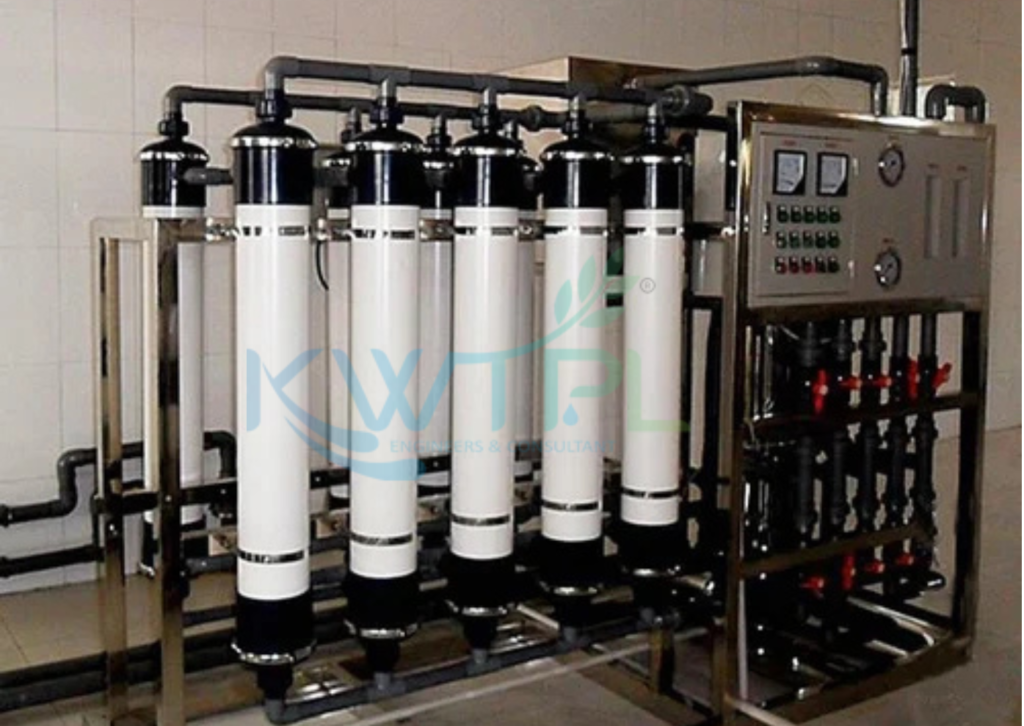Ultrafiltration Water Treatment Plants

Water contamination is a pressing global issue, necessitating efficient and sustainable treatment methods. Among the various water purification technologies, ultrafiltration (UF) has emerged as a highly effective solution for removing impurities, bacteria, and viruses from water. An Ultrafiltration Water Treatment Plant employs advanced membrane filtration techniques to ensure the production of clean, safe, and high-quality water for residential, commercial, and industrial applications.
What is Ultrafiltration?
Ultrafiltration (UF) is a membrane-based water purification process that utilizes semi-permeable membranes to separate suspended solids, bacteria, viruses, and large molecular weight compounds from water. The UF membranes have pore sizes ranging from 0.01 to 0.1 microns, effectively blocking contaminants while allowing purified water to pass through.
Working Principle of Ultrafiltration
The ultrafiltration process works based on pressure-driven separation, which consists of the following steps:
1. Pre-treatment – Raw water undergoes screening to remove large particles and sediments.
2. UF Membrane Filtration – Water is forced through UF membranes under controlled pressure, trapping impurities and microorganisms.
3. Collection of Purified Water – The filtered water is collected in storage tanks for further use.
4. Backwashing and Cleaning – Periodic cleaning of the membranes is conducted to prevent clogging and ensure efficient operation.
Components of an Ultrafiltration Water Treatment Plant
An ultrafiltration plant consists of various essential components:
- Feed Water Pump: Draws raw water into the system.
- Pre-filters: Remove larger particles before membrane filtration.
- UF Membranes: The core component that removes contaminants.
- Cleaning System: Helps in membrane maintenance.
- Storage Tanks: Collects purified water for distribution.
- Control Panel: Monitors and manages plant operations.
Key Benefits of Ultrafiltration Water Treatment
Ultrafiltration systems offer numerous advantages, making them an ideal choice for diverse water treatment applications:
1. Superior Filtration Efficiency – Removes bacteria, viruses, and particulate matter effectively.
2. Chemical-Free Operation – UF does not require chemical disinfectants, making it an environmentally friendly option.
3. Consistent Water Quality – Provides reliable and high-quality water output.
4. Energy-Efficient – Operates at low pressure, reducing energy consumption.
5. Compact and Modular Design – UF systems are space-efficient and can be easily scaled up.
6. Low Maintenance Requirements – With automated cleaning systems, UF membranes have a long service life.
Applications of Ultrafiltration Water Treatment Plants
Ultrafiltration plants find applications in various sectors due to their high efficiency:
- Drinking Water Purification – Ensures safe and clean drinking water for households and communities.
- Industrial Water Treatment – Used in manufacturing industries for process water.
- Wastewater Reuse – Treats and recycles wastewater for secondary applications.
- Food & Beverage Industry – Ensures purity in food processing and beverage production.
- Pharmaceutical & Healthcare – Provides ultra-pure water for medical and pharmaceutical use.
- Desalination Pre-Treatment – Used as a pre-treatment process for reverse osmosis systems.
Maintenance and Operational Considerations
To ensure the efficiency and longevity of ultrafiltration plants, proper maintenance is essential:
- Regular Backwashing: Prevents membrane clogging and maintains performance.
- Chemical Cleaning: Periodic chemical cleaning extends membrane lifespan.
- Monitoring Water Quality: Ensures consistent output and detects early signs of contamination.
- System Inspections: Routine inspections prevent operational failures and downtime.
Advanced Ultrafiltration Water Treatment Plants by Kelvin Water Technologies
Kelvin Water Technologies is a renowned manufacturer of Ultrafiltration (UF) Water Treatment Plants, offering advanced and efficient water purification solutions for residential, commercial, and industrial applications. Their UF plants are designed with high-efficiency membranes that effectively remove bacteria, viruses, and suspended solids, ensuring clean and safe water. These systems feature a compact and modular design, making them space-efficient and easily scalable based on specific requirements. With low energy consumption and a chemical-free filtration process, Kelvin Water Technologies ensures an eco-friendly approach to water treatment. Additionally, their UF plants come with an automatic backwashing system, reducing maintenance efforts and enhancing operational efficiency.
Conclusion
Ultrafiltration water treatment plants offer an advanced, energy-efficient, and reliable solution for water purification. With their ability to remove bacteria, viruses, and particulates, UF systems play a crucial role in providing clean and safe water for various applications. As water scarcity and contamination challenges continue to rise, ultrafiltration technology stands out as a sustainable and effective method for ensuring a safe water supply worldwide.